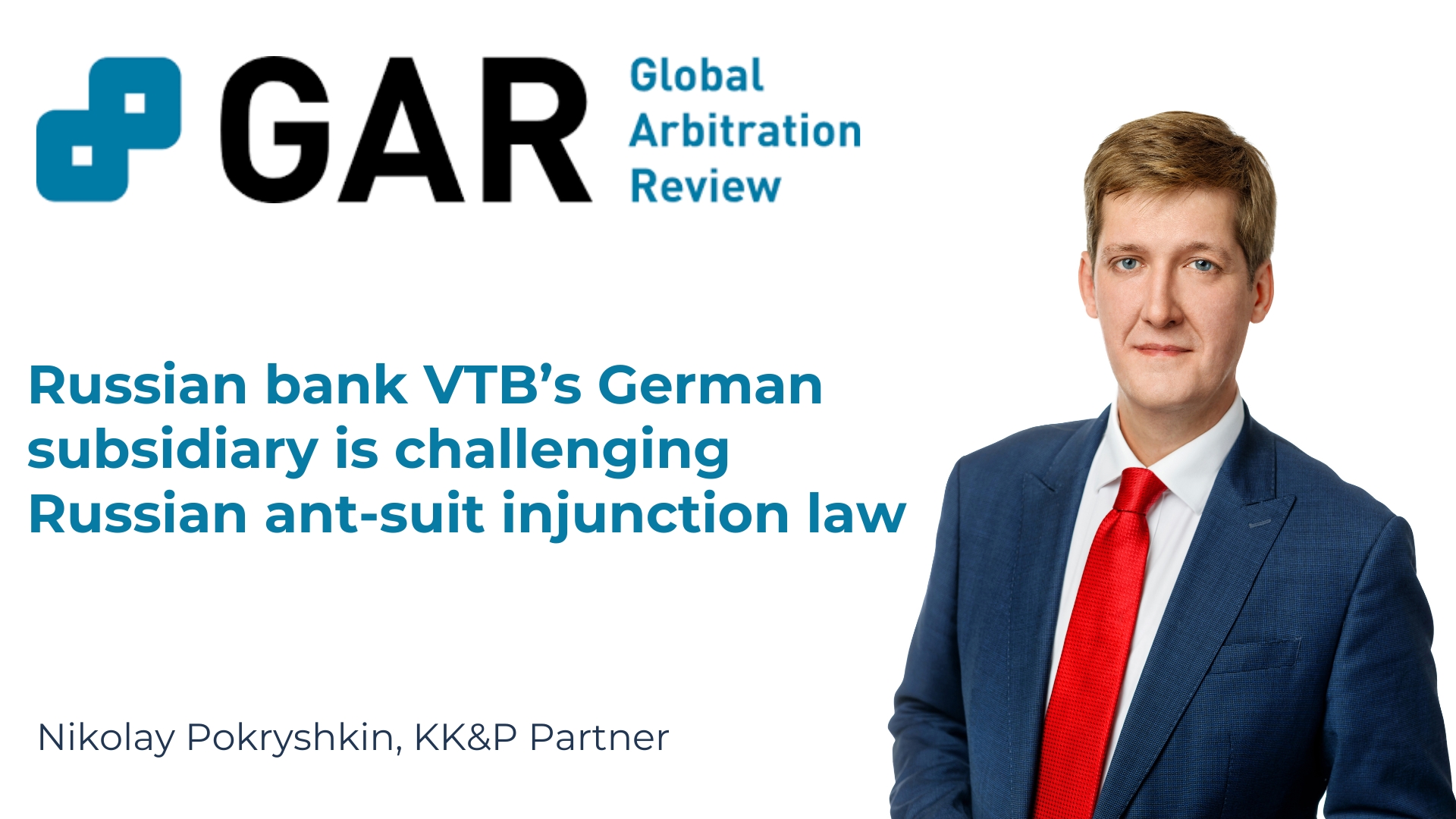Nikolay Pokryshkin speaks to the Global Arbitration Review regarding Russian bank VTB’s German subsidiary’s challenge of a Russian anti-suit injunction law
In 2022, VTB was blocked from exercising control over its German subsidiary OWH (formerly known as VTB Bank Europe), and the Russian bank launched Russian court proceedings to collect €112 million it says is owed by OWH as a settlement payment under an agreement terminating their relationship.
Saying it could not pay due to EU sanctions, OWH told its parent company that it intended to file an HKIAC claim under an arbitration clause in their derivatives agreement.
Granting VTB an anti-arbitration injunction under Article 248.2 of Russia’s Commercial Procedure Code, Russian courts found that, as a sanctioned entity, VTB would face obstacles to access to justice in Hong Kong and barred VTB Europe from initiating claims in the HKIAC, the Hong Kong courts and any other court or arbitration centre outside Russia.
OWH has filed a complaint with Russia’s Constitutional Court arguing that the Lugovoy Law is unconstitutional and should only be applied where sanctions result in real obstacles to access to justice. It says Hong Kong should be considered a friendly jurisdiction as China has not imposed sanctions against Russia and is not on the list of unfriendly jurisdictions.
A Global Arbitration Review reporter discussed the possible position of the Constitutional Court legal specialists.
Nikolay Pokryshkin, partner at KK&P Trial Lawyers, admits he doesn’t expect too much from this case and assumes the appeal would, most likely, be rejected by the Court that the provisions of the law comply with Constitution, since
- the articles provide that Russian courts should consider, in each case, whether there are obstacles to access to justice in the particular foreign state court or arbitral tribunal
- such obstacles may be faced in jurisdictions that are formally “friendly” or “neutral” to Russia
- courts / arbitral tribunals in “unfriendly” states could potentially consider disputes fairly with no obstacles for Russian parties
- therefore, the test of “friendly” / “unfriendly” / “neutral” countries (identified by the Russian Government) for application of Articles 248.1 and 248.2 would lead to a very formalistic approach based on “nationality”, which may be treated as a violation of parties’ rights and international treaties (as opposed to the allegedly “fair” approach aimed at consideration of the specific circumstances provided by current law provisions).
Nikolay notes, that the “aforementioned interpretation completely ignores actual court practice on application of these law provisions”.
As a rule, Russian courts do not consider any factual circumstances related to obstacles to access to justice, which is effectively approved by the Supreme Court of Russia (for example, in the NS Bank v Lukoil case ruling issued in November 2024). However, it is Articles 248.1 and 248.2 that provide the relevant test.
“Therefore, the Constitutional Court, most likely, would state that the law provisions themselves are fine and there is no need to change them, while allegedly improper interpretation of these law provisions by the courts is not a ground for satisfaction of the appeal, because the Constitutional Court should check the law provision themselves”, according to Nikolay.
Nikolay observes, that “even if Constitutional Court provides a detailed interpretation of the law provisions and states that the courts should consider facts related to obstacles due to the current law provisions (as a ground to reject the appeal), in practice such interpretation may be ignored by the commercial courts (especially while the Supreme Court approves another approach). There are dozens of Constitutional Court positions and even formally mandatory judgments which have been ignored by the lower courts and other public bodies for years”.
It is necessary to take into account the fact that the potential application of the “friendly jurisdiction” test to the arbitration proceedings is quite uncertain. Thus, the nationality of all or some arbitrators (who effectively consider the case) usually differs from the jurisdiction of the arbitration institution. Moreover, the nationality of arbitrators is unknown until the start of arbitration proceedings (while disputes under Articles 248.1 and 248.2 quite often take place prior to commencement of arbitration proceedings).
Finally, according to the partner, “it’s hard to imagine an indisputably fair application of the “friendly jurisdiction” test in such a case”.
Read the full article here (available by subscription).

